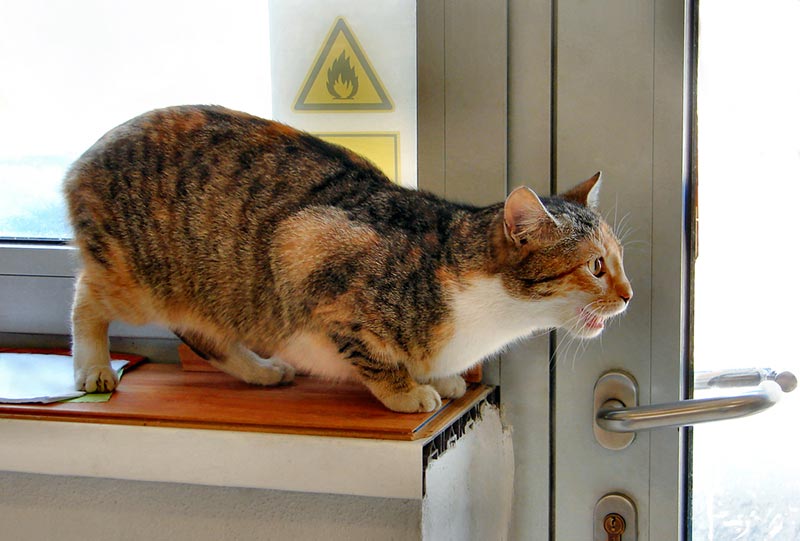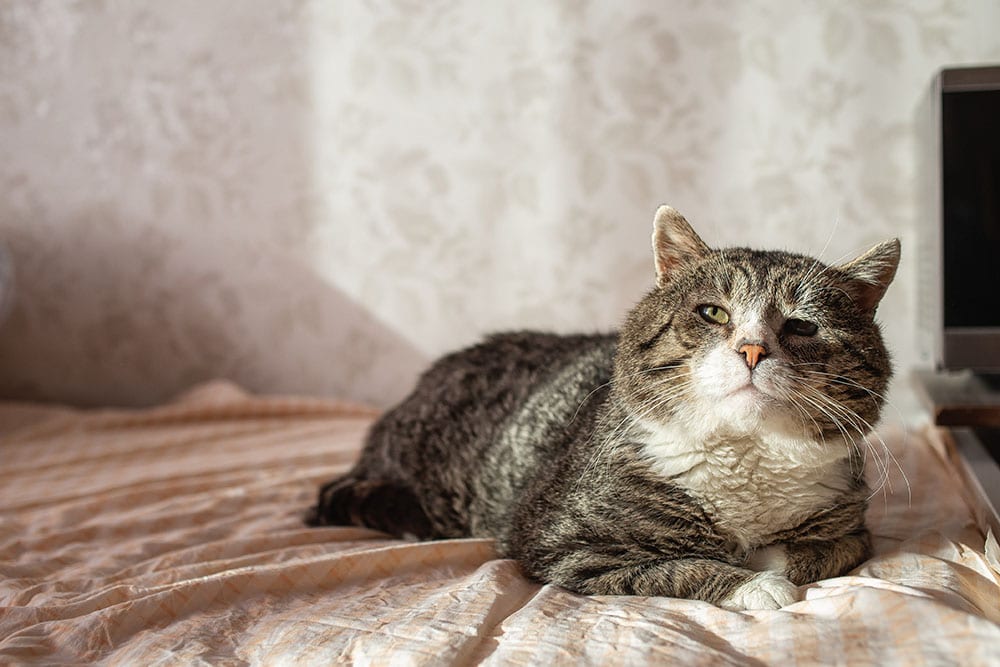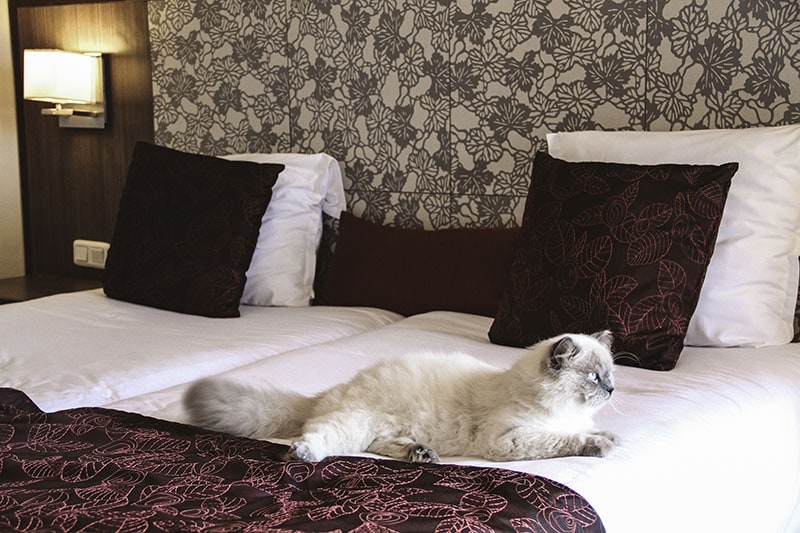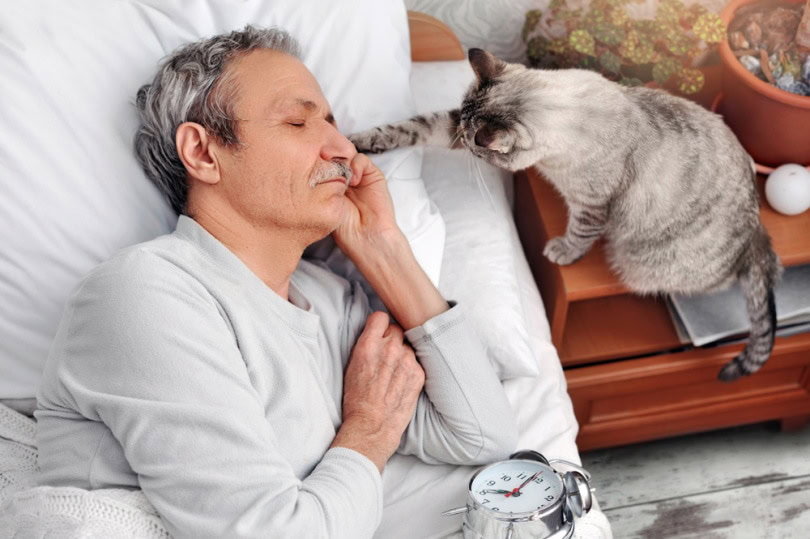VET APPROVED

The information is current and up-to-date in accordance with the latest veterinarian research.
Learn more »As a cat parent, you’re used to your cat doing all kinds of curious and strange things. One is getting up from where it’s sitting, entering another room, and meowing loudly.
This can be a startling sound and send any pet parent running to the aid of their feline friend. When you realize there’s nothing wrong, you’re left standing in the doorway, scratching your head. Why is your cat yowling in another room? It seems there are more than a few reasons for this behavior.
Most of these reasons are nothing to worry about, but some require an appointment with your vet. We’ll discuss why cats meow in another room in the guide below, so stay tuned.

The 9 Reasons Your Cat Goes to Another Room and Meows
1. For Attention
If you’re busy doing something else and aren’t paying attention to your cat, it could go into another room and meow loudly because the cat knows you’ll come to see what’s happening.
If your cat is bored, restless, or wants to play and you’re not responding, it could resort to this behavior to get the attention it craves. This is the most common reason cats go into another room and meow.
You can remedy this by setting aside some time every day to love, pet, and play with your cat. The last thing you want is to reinforce this behavior in your cat since it will continue to do it.

2. Litter Box Needs Cleaning/Cat Is Hungry
If you walk into the room where your cat is meowing in and see their food bowl is empty, you probably know what the problem is. The meowing could be because they think it’s time for you to feed them. If you fill the food and water bowls, everything should be fine.
Another common reason for a cat meowing loudly in another room is because its litter box is dirty. Cats are very clean, fastidious creatures and won’t use a dirty litter box. If your cat’s litter box needs to be cleaned, it could be meowing to let you know the litter isn’t up to its standards of cleanliness and that you need to do something about it.
3. In Heat
Another reason a cat will meow in another room is that it’s in heat. Cats don’t typically communicate with each other by meowing loudly, but they do yowl to let other cats in the area know they are in heat, which is, in essence, a cat’s mating call.
Other signs that your cat could be in heat include being clingy, rubbing against you, trying to escape through any open door or window, and being super demanding.
The best way to keep your cat from going into heat is by having her spayed when she’s old enough. The procedure can possibly keep her from developing certain cancers and other health issues.

4. The Cat Is Lonely
Cats get lonely just as people and dogs do. So, your cat going into another room and meowing loudly could be because it’s lonely. Cats can also suffer from separation anxiety and could be searching for a member of the family that isn’t home.
If that is the case with your cat, take the time to pet them, spend time with them, and they should be fine. You can try distracting the cat with treats or toys until the person they miss most returns to be with them. If the behavior doesn’t stop, your cat could be suffering from separation anxiety, and the best thing to do is get an appointment with your vet so that they can diagnose and offer a solution to your problem.
5. Sickness
Sometimes, a cat going into another room to meow means it is sick. Cats often hide that they are sick, but here are a few signs to watch out for:
- Excessive grooming
- Changes in appetite
- Hiding
- Flattened ears
- Aggression
- Toileting outside the litter box
As with separation anxiety, if your cat shows any of the signs above, contact a vet for help. The vet can help you get to the bottom of the sickness and meowing.

6. Stress and Anxiety
Stress and anxiety can affect cats just as they can their owners. There are many things that can cause stress in your cat. Moving to a new environment, bringing a new baby, person, or pet into the home, or even just a minor disruption can upset your cat.
Meowing in another room may indicate that your cat is stressed, but it’s not the only sign you’ll see. Stressed cats may display these signs:
- Diarrhea
- Constipation
- Digestive issues
- Sleeping more
- Excessive grooming
- Decrease in appetite
It’s best to schedule more alone time with your cat so that they can see there’s nothing to be stressed about. If spending more time with your feline doesn’t remedy the situation, it may be time to seek professional help for your cat.
7. The Cat Needs Help
If your cat left the room a while ago and suddenly starts meowing loudly, it might need your help. The cat may have gotten stuck up on a shelf or in a spot it can’t escape. It’s essential to investigate your cat’s loud meowing, as you never know what could be wrong.

8. It’s the Cat’s Genetics
Some breeds, such as the Siamese, the Bengal, or the Oriental, have loud meowing in their genetic makeup. If your cat is exceptionally vocal most of the time, even in another room, it screams because it comes naturally. In many cases, it runs in the family and is just part of the cat’s personality.
9. Feline Dementia
As your feline ages, they might develop cognitive dysfunction or feline dementia. This involves a gradual decline in their cognitive abilities, which can manifest as excessive vocalization, changes in sleeping patterns, lack of playing, reduced appetite, and toileting outside the litter box.
Older cats may also suffer from vision problems and one of the ways you could notice is by excessive meowing when in a different room if they get disoriented. A trip to the vet is essential if your older cat starts to meow more than usual.


Final Thoughts
As you can see, cats go into other rooms and meow loudly for various reasons. They could want your attention, their food and water bowls could be empty, or the litter box might be full. They also do this when they want attention and sometimes just because they can.
However, it’s time to visit your vet if you can’t determine why your cat is screaming in another room and the previous tips don’t help. While the behavior might be nothing, it’s always best to find out for sure.
Featured Image Credit: BrittanyNY, Shutterstock












